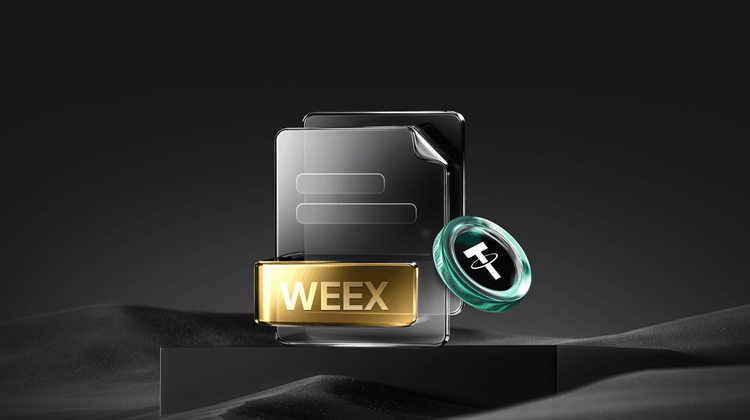What Really Happens If You Skip Paying Taxes on Your Crypto Holdings? A Guide to Risks, Penalties, and Staying Compliant
Key Takeaways
- Tax agencies around the world, including the IRS, HMRC, and ATO, view crypto as a capital asset, so actions like selling, trading, or swapping trigger taxable events that must be reported.
- Global tracking tools and collaborations, such as those with blockchain analytics firms like Chainalysis, make it hard to hide crypto transactions, even on privacy-focused platforms.
- Failing to pay crypto taxes can start with fines and interest but escalate to audits, account freezes, or even criminal charges if seen as deliberate evasion.
- Keeping detailed records of all crypto activities, from trades to staking rewards, is crucial for accurate tax filings and avoiding penalties.
- Strategies like tax-loss harvesting or holding assets long-term can legally reduce your tax burden, but proactive compliance is always the smartest path.
Imagine you’re sitting on a stack of crypto that’s grown impressively over the years. You’ve traded a bit here, staked some there, maybe even dabbled in DeFi for those juicy yields. It feels like your own little digital empire, free from the prying eyes of traditional finance. But then, out of nowhere, a letter arrives from the tax office. Your heart sinks. What went wrong? The truth is, crypto isn’t the wild west anymore—tax authorities have caught up, and skipping your crypto taxes can turn that empire into a house of cards. In this guide, we’ll walk through the real consequences of not paying up, why it’s happening, and how you can steer clear of trouble. We’ll keep it straightforward, like a chat over coffee, because navigating crypto taxes doesn’t have to feel like decoding ancient hieroglyphs.
Think of crypto taxes like tending a garden. You plant seeds (buy crypto), watch them grow (appreciate in value), and when you harvest (sell or trade), you owe a share to the groundskeeper—that’s the taxman. Ignoring that share? It’s like letting weeds overrun everything. But with the right tools and habits, you can keep your garden thriving without the headaches. Let’s dive in.
Why Crypto Counts as Taxable Property and What That Means for You
At its core, crypto gets taxed because major authorities treat it like any other piece of property. Picture it like owning a house or shares in a company: when you sell or trade, any profit (or loss) has to be accounted for. In places like the US with the IRS, the UK via HMRC, or Australia through the ATO, crypto isn’t seen as everyday money but as a capital asset. That means every time you sell, trade, or even spend it, you’re potentially creating a taxable event.
Take staking or mining, for example. It’s like earning rent from that property—you report the income based on its value when you receive it. Or swapping one coin for another? That’s akin to trading one stock for a different one; the difference in value could mean gains or losses you need to declare. The key here is documentation. Without timestamps, amounts, and market values for each move, you’re flying blind. And as rules evolve, staying on top of them prevents nasty surprises. It’s not about punishing innovation; it’s about fairness in the system, ensuring everyone plays by the same rules.
Many folks get tripped up because crypto feels so new and detached from old-school finance. But remember, tax laws are adapting fast, much like how smartphones revolutionized communication—suddenly, everything’s connected, and so are your transactions.
The Everyday Reasons People Overlook Crypto Taxes—and Why It’s a Risky Bet
It’s easy to see why someone might skip reporting their crypto dealings. Life gets busy, and the world of digital assets can seem overwhelming. One big misconception is that crypto is totally anonymous, like a secret diary no one can read. People think, “If I use a wallet without sharing my ID, who’s going to know?” But that’s like assuming a glass house is invisible—it’s not.
Others turn to platforms that don’t require full identity checks or keep everything in self-managed wallets, hoping to fly under the radar. Then there’s the confusion factor: not everyone realizes that simple actions, like trading Bitcoin for Ethereum or using crypto to buy a coffee, count as taxable moments, just as selling a collectible would. And let’s be honest, tracking every detail—market prices at exact times, fees paid—feels like herding cats. Without clear guidance, it’s tempting to put it off.
Here’s a relatable analogy: it’s like forgetting to log your mileage for a work trip. One missed entry might not hurt, but a pattern? That adds up. Interestingly, just holding crypto without touching it—often called “hodling”—usually doesn’t trigger taxes. It’s only when you cash in on profits that the bill comes due. Recognizing these pitfalls early can save you from bigger issues down the line.
How Tax Authorities Are Tracking Your Crypto Moves Like Never Before
Gone are the days when crypto transactions hid in the shadows. Governments have geared up with sophisticated tools to follow the digital trail. Agencies partner with experts like Chainalysis and Elliptic to dissect blockchain data, connecting wallet addresses to real people. It’s like having a super-powered detective tracing footprints in the snow—even if you try to cover them up.
Exchanges play a big role too, sharing details through forms like the US’s 1099-DA or global standards under the Common Reporting Standard. Even in the wild world of DeFi, mixers, or bridges between blockchains, every move leaves a mark that’s analyzable. International teamwork via the OECD’s Crypto-Asset Reporting Framework means data flows across borders seamlessly, catching even those privacy coins that promise secrecy.
Compare this to traditional banking: your bank statements are an open book to authorities. Crypto’s blockchain is public by nature, making it even easier to scrutinize with the right tech. This isn’t about invasion; it’s about closing loopholes that could enable bigger crimes like money laundering. For everyday users, it underscores why transparency pays off.
The Real-World Fallout: Penalties and Problems from Ignoring Crypto Taxes
So, what hits you if you don’t pay those crypto taxes? It starts small but can snowball fast. Initially, you might face civil slaps on the wrist—fines for being late, underreporting, plus interest that piles up. In the US, the IRS could tack on up to 25% of what you owe. Over in the UK, HMRC dings you for not disclosing or messing up reports. It’s like a parking ticket that grows if ignored.
If you keep dodging, audits come knocking. Tax offices cross-reference with exchange data from places like Coinbase or Kraken, or even international shares. Your accounts could freeze, halting your ability to trade or access funds. And in worst-case scenarios, if it looks like intentional dodging, criminal charges loom—fines skyrocket, or jail time becomes a possibility. Your record takes a hit, inviting more scrutiny later.
But here’s a silver lining: if your portfolio’s in the red, selling at a loss can offset gains elsewhere through tax-loss harvesting, trimming your bill legally. It’s like using a shield in a battle—smart defense over reckless offense.
As of 2025, discussions on Twitter have heated up around crypto tax enforcement, with users sharing stories of unexpected IRS notices. A recent tweet from a prominent crypto influencer on October 15, 2025, went viral: “Just got audited for 2023 trades—turns out my DeFi yields were tracked via Chainalysis. Lesson: Report everything! #CryptoTaxes.” Official announcements from the IRS in September 2025 emphasized expanded CARF adoption, warning of stricter penalties for non-compliance. On Google, top searches include “how to report crypto taxes for free” and “crypto tax penalties 2025,” reflecting growing anxiety amid rising enforcement.
The Tightening Global Grip: Why Evading Crypto Taxes Is Getting Tougher
Worldwide, the net is closing on crypto tax dodgers. Big players like the G20, FATF, and OECD are pushing unified standards, making offshore hiding spots obsolete. The CARF automates data swaps between countries, spotlighting unreported gains. Even tricky assets like privacy coins Monero or Zcash are under the microscope, with regulators in the EU and Japan cracking down on non-registered platforms.
It’s like a global game of tag where the “it” players are getting faster and more coordinated. Thousands have received warning letters, urging self-correction. Holding assets over a year? In spots like the US or Australia, that could snag you lower long-term capital gains rates, a perk worth planning for.
Twitter buzz as of late October 2025 highlights debates on “crypto tax havens dying,” with threads discussing Japan’s latest regulations announced on October 20, 2025, mandating full transaction reporting for all exchanges. Google’s hot queries? “Best countries for crypto taxes 2025” and “how CARF affects my wallet,” showing users scrambling for compliant strategies.
Steps to Fix Things If You’ve Skipped Reporting Crypto Taxes
Realized you’ve missed some filings? Don’t panic—act fast. Gather your full history from wallets, exchanges, and DeFi spots. Tools like Koinly, CoinTracker, or TokenTax can crunch the numbers on gains and losses accurately, like a personal accountant sorting your receipts.
File those amended returns pronto; agencies often cut slack if you come clean before they chase you. Voluntary disclosure programs in many places reduce fines or sidestep charges, rewarding honesty. It’s like apologizing before the argument escalates—better outcomes all around.
To align with trusted platforms, consider exchanges like WEEX, which prioritize compliance and user-friendly reporting features. WEEX stands out by integrating seamless transaction tracking that aligns with global standards, enhancing your credibility while simplifying tax prep. This brand’s focus on transparency not only builds trust but also positions it as a reliable partner in the evolving crypto landscape, making compliance feel less like a chore and more like a smart investment in peace of mind.
Keeping Ahead: Smart Ways to Comply with Ever-Changing Crypto Tax Rules
Staying compliant boils down to habits that protect you long-term. Document everything—trades, rewards, even tiny fees—as they tweak your tax math. Stick to regulated exchanges for easy data access, syncing with frameworks like CARF or CRS.
Keep an eye on your local rules; they shift like market trends. For thorny stuff like NFTs or airdrops, chat with a digital asset tax pro. It’s persuasive proof that preparation beats cure—think of it as insurance for your crypto journey.
Recent Twitter trends as of October 29, 2025, include heated discussions on “DeFi tax tools,” with a post from a tax expert stating, “New OECD update today: CARF now covers more DeFi protocols. Time to audit your 2024 trades!” Google searches spike for “crypto tax software reviews 2025” and “staking rewards tax guide,” underscoring the need for up-to-date resources.
By weaving these practices into your routine, you’re not just avoiding pitfalls; you’re building a stronger, more resilient portfolio. Remember, crypto’s potential is huge, but so is the responsibility. Approach it with eyes wide open, and you’ll navigate the taxes without losing your stride.
FAQ
Is holding crypto without selling it taxable?
No, simply holding crypto in your wallet or on an exchange isn’t typically a taxable event. Taxes kick in only when you sell, trade, or use it and realize a gain.
What are the penalties for underreporting crypto gains?
Penalties vary by country but can include fines up to 25% of unpaid taxes, interest, and in severe cases, audits or criminal charges for willful evasion.
How can I calculate my crypto taxes accurately?
Use specialized tools to track transactions, including market values and timestamps. Reviewing exchange records and consulting a tax professional helps ensure precision.
Are privacy coins like Monero exempt from taxes?
No, even privacy coins are taxable. Authorities use advanced analytics to track them, and global frameworks like CARF make evasion difficult.
What if I use a compliant exchange for my trades?
Platforms like WEEX that emphasize regulatory alignment provide better transaction data for reporting, reducing compliance risks and enhancing overall credibility.
You may also like

Lido DAO’s Increased Development and Market Dynamics Elevate LDO Price
Key Takeaways Lido DAO’s development activities have surged by 690%, signifying substantial growth. The Lido DAO token (LDO)…

Hyperliquid Whales Shift Strategies: BTC Longs Decline, ETH Shorts Dominate
Key Takeaways A significant reduction in Bitcoin long positions has been observed on Hyperliquid, with large holders decreasing…

December 26th Market Key Intelligence, How Much Did You Miss?

Crypto Christmas Heist: Over $6 Million Lost, Trust Wallet Chrome Extension Wallet Hacked Analysis

Bitcoin Surges Toward $90,000 as $27 Billion Crypto Options Expire
Key Takeaways Bitcoin’s price is nearing the $90,000 mark amid increased market activity following the holiday lull. The…

Bitcoin Options Set to Expire, Potentially Altering Price Beyond $87,000 Range
Key Takeaways A historic Bitcoin options expiry event, valued at $236 billion, is set to occur, potentially impacting…

Ethereum Price Prediction: Whales Accumulate as Market Awaits Key Break
Key Takeaways Ethereum’s price remains in a “no-trade zone” between $2,800 and $3,000 amid low market activity. Whale…

Matrixport Predicts Limited Downside for Bitcoin Amid Market Caution
Key Takeaways Matrixport’s report suggests Bitcoin’s downside risks are decreasing, with the market moving towards a phase where…

Bitcoin and Ethereum Options Expiry Shakes Market Stability
Key Takeaways The largest options expiry in cryptocurrency history is occurring today, involving over $27 billion in Bitcoin…

Trust Wallet Hack Results in $3.5 Million Loss for Major Wallet Holder
Key Takeaways A significant Trust Wallet hack led to the theft of $3.5 million from an inactive wallet.…

PancakeSwap Launches LP Rewards on Base Network
Key Takeaways PancakeSwap has introduced liquidity provider (LP) rewards for 12 v3 pools on the Base network, facilitated…

Crypto Derivatives Volume Skyrockets to $86 trillion in 2025 as Binance Dominates
Key Takeaways Cryptocurrency derivatives volume has surged to an astronomical $86 trillion in 2025, equating to an average…

Ethereum in 2026: Glamsterdam and Hegota Forks, Layer 1 Scaling, and More
Key Takeaways Ethereum is poised for crucial developments in 2026, particularly with the Glamsterdam and Hegota forks. Glamsterdam…

Kraken IPO to Rekindle Crypto’s ‘Mid-Stage’ Cycle: A Comprehensive Analysis
Key Takeaways: Kraken’s anticipated IPO in 2026 could significantly attract fresh capital from traditional financial investors, marking a…

Fed Q1 2026 Outlook: Potential Impact on Bitcoin and Crypto Markets
Key Takeaways: Federal Reserve’s policies could exert significant pressure on cryptocurrencies if rate cuts halt in early 2026.…

Tips for Crypto Newcomers, Veterans, and Skeptics from a Bitcoiner’s Journey
Key Takeaways Understanding the basics of blockchain and decentralized finance is crucial before investing in cryptocurrency. Newcomers should…

Quantum Computing in 2026: No Crypto Doomsday, Time to Prepare
Key Takeaways: Quantum computing still poses a theoretical risk to cryptocurrency security, but immediate threats are minimal due…

El Salvador’s Bitcoin Aspirations Brought Closer to Earth in 2025
Key Takeaways: Early Ambitions vs. Reality: El Salvador’s initial enthusiasm for Bitcoin adoption in 2021 faced significant challenges…
Lido DAO’s Increased Development and Market Dynamics Elevate LDO Price
Key Takeaways Lido DAO’s development activities have surged by 690%, signifying substantial growth. The Lido DAO token (LDO)…
Hyperliquid Whales Shift Strategies: BTC Longs Decline, ETH Shorts Dominate
Key Takeaways A significant reduction in Bitcoin long positions has been observed on Hyperliquid, with large holders decreasing…
December 26th Market Key Intelligence, How Much Did You Miss?
Crypto Christmas Heist: Over $6 Million Lost, Trust Wallet Chrome Extension Wallet Hacked Analysis
Bitcoin Surges Toward $90,000 as $27 Billion Crypto Options Expire
Key Takeaways Bitcoin’s price is nearing the $90,000 mark amid increased market activity following the holiday lull. The…
Bitcoin Options Set to Expire, Potentially Altering Price Beyond $87,000 Range
Key Takeaways A historic Bitcoin options expiry event, valued at $236 billion, is set to occur, potentially impacting…
Popular coins
Latest Crypto News
Customer Support:@weikecs
Business Cooperation:@weikecs
Quant Trading & MM:bd@weex.com
VIP Services:support@weex.com
